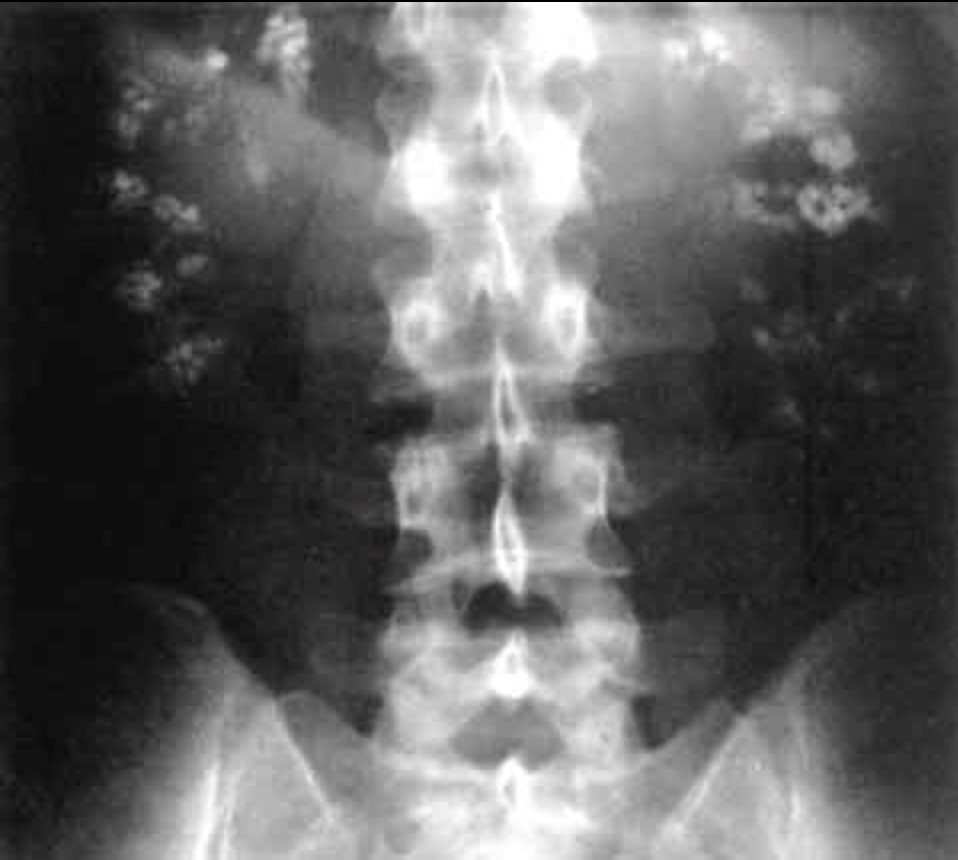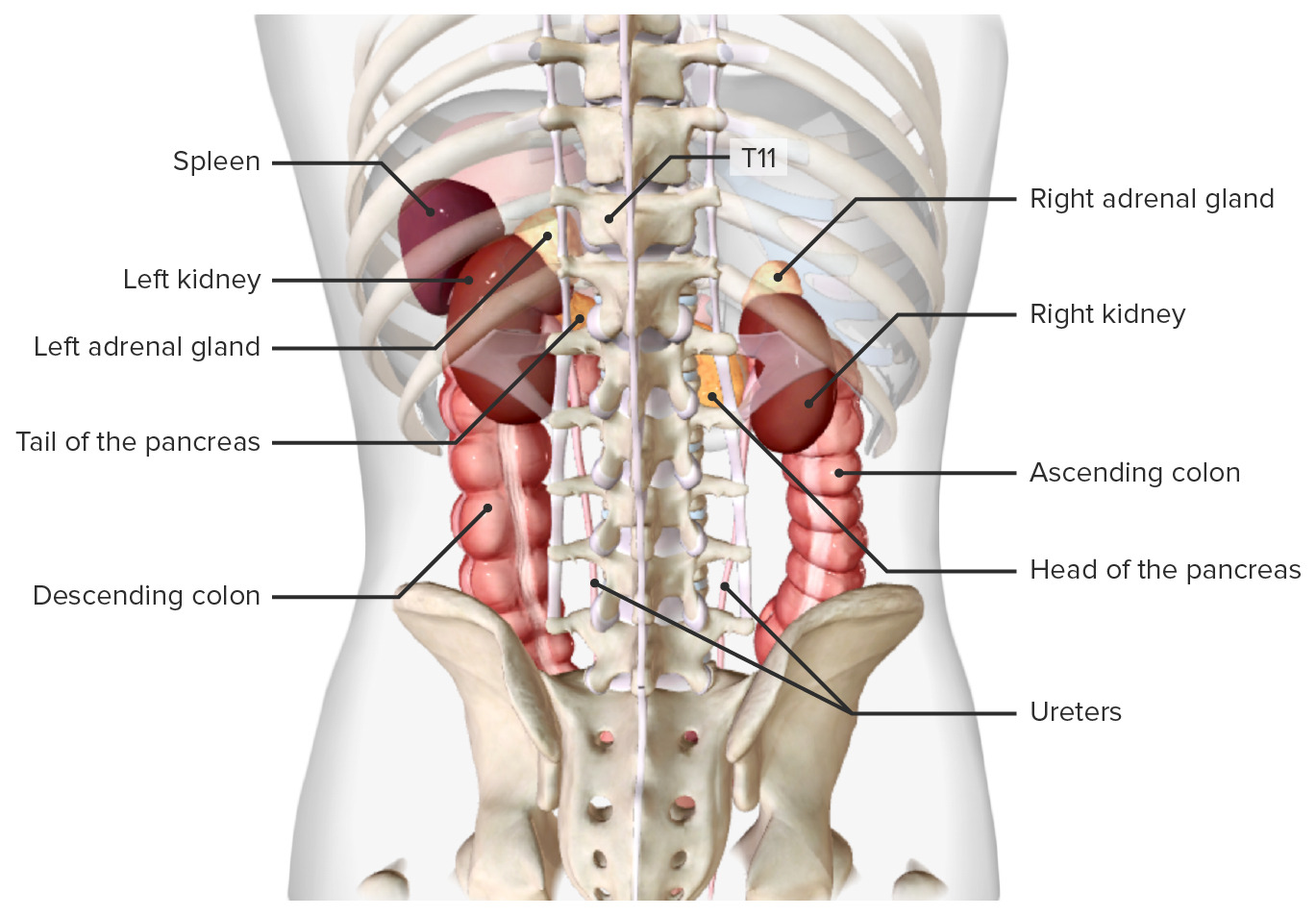Playlist
Show Playlist
Hide Playlist
Proximal Convoluted Tubule (PCT): Fanconi Syndrome
-
Slides PCT ClinicalEffectsSyndromsandDiseases RenalPathology.pdf
-
Download Lecture Overview
00:00 Now with Fanconi, further definition, generalized dysfunction of PCT due to cellular energy metabolism might be lost. Remember the PCT is the segment of the nephron that requires quite a bit of ATP, doesn't it? Because it requires that basolateral membrane, sodium- potassium ATPase pumped to generate that symport and antiport and so forth result in impaired reabsorption of almost all of your substances, and may result in all kinds of issues may be idiopathic, maybe you have drugs that may then cause toxicity. Multiple myeloma, which we'll talk about this as being paraprotein type of issue and multiple myeloma, we will talk about Bence-Jones light proteins. You have recap on them and we will talk about that in great detail. This may then cause damage to the PCT along with your myeloma casts. Do not worry. All this is to come and it might be inherited disorder. Now this is interesting. Pay attention. The most common is cystinosis. So in inherited disorder in which it may cause damage to your PCT, inherited, a cystinosis, a rare disorder of cysteine deposition in tissue. So in an inherited disorder, cystinosis, there might be generalized damage to the PCT. 01:25 All this is saying on this particular slide is the fact that we have numerous causes of Fanconi syndrome. What does this mean? It means generalized dysfunction of the PCT. 01:36 What are you going to find in your labs? Pretty much everything is decreased. Your pH is decreased, why please? Because you cannot reclaim your bicarb. What kind of RTA is that? Renal tubular acidosis. May I ask you something? What if you took that drug called acetazolamide? When did we, you and I, give acetazolamide? Who is that patient? High altitude. To do what? To facilitate the renal compensation, to get rid of bicarb in the patient that had respiratory alkalosis. 02:11 Are you with me? Good. If you are getting rid of your bicarb in the patient, with acetazolamide, technically speaking what are you creating? A type II RTA. What if you had a patient, listen to this one, the boards or the wards or whatever will ask you such questions, think. What if you have a patient who genetically was missing carbonic anhydrase? If you are genetically missing, autosomal recessive disorder, in which your carbonic anhydrase is missing, what happens to your renal threshold for reclaiming bicarb? It is decreased. What kind of RTA is this? RTA type II. You see that. So all that RTA type II means to you is the fact that well it is just a consequence of many diseases of the proximal convoluted tubule. Be smart about how you approach diseases. Keep abreast of you, do not dive into the details immediately without first understanding of the big picture. 03:15 Next in Fanconi, you are going to lose everything. Polyuria, polydipsia, dehydration, in other words, there is a lot of solute in my urine. You tell me what kind of diuresis. Osmotic diuresis, pathologic of course. You give me a diuretic provides osmotic diuretic or as it works its osmotic diuresis. Mannitol. Multiple metabolic issues. We talked about metabolic acidosis, what kind please? RTA type II. Your next step is this. You ready? So you find your patient having metabolic acidosis. What does that mean in terms of pH? Decreased. 03:52 What does that mean to you specifically? You have your pH being less than 7.35 or so. I will give you something significant like maybe 7.2. So for sure you know you're acidosis. You take a look at your bicarb and it's less than 22, maybe 18, maybe 15. So now you have confirmation of metabolic acidosis. Are we clear? And so, therefore, how would you then compensate well? The compensation would be immediate with respiratory blowing off with hyperventilation, are we clear? Good. Fanconi syndrome, RTA type II. Hypophsophatemia, you are getting rid of your phosphate. Remember you lost homeostasis of phosphate in the PCT. Indirectly you might end up losing your potassium, hypokalemia and may result in hypocalcemia. Remember the reason that we have bone next to calcium and phosphate, how do you form bone? How do you make your bone extremely strong? It is called hydroxyappetite. Correct? Hydroxyappetite, what does that actually mean? The combination of calcium and phosphate, it's the proper mineralization of your bone. End up losing the calcium and you lose your phosphate, your bone is definitely going to be affected or influenced. So you can see Fanconi syndrome is a wonderful disease in which we can integrate and bring in a lot of issues all at the same time. 05:08 Major complication. We talked about the bone formation resulting in growth impairment and perhaps even failure to thrive. Let us talk about a couple of other diseases here of the PCT. We haven't left PCT yet. Now we have hartnup because in hartnup you cannot properly reabsorb tryptophan. Got that. P and P. Hartnup, tryptophan. So these are neutral amino acids specifally tryptophan, that is which you want to pay attention to. The other one will be cystinuria, inherited disease. You cannot properly take up a basic amino acid and there is a nicely know mnemonic here called COLA or whatever that you may want to use in which apart from cystine you may also not be able to properly take up ornithine, lysine, and arginine. We shall see. So PCT, you are not able to properly take up your tryptophan in hartnup and cystinuria with the mnemonic Cola. Let us take a look. 06:12 Both diseases, you end up having issues in the PCT. It is inherited autosomal recessive and the defect in the fact that you cannot properly take up these particular amino acids.
About the Lecture
The lecture Proximal Convoluted Tubule (PCT): Fanconi Syndrome by Carlo Raj, MD is from the course Diseases of the Nephron.
Included Quiz Questions
Which of the following is not an etiology of Fanconi syndrome?
- Fanconi anemia
- Multiple myeloma
- Drug toxicity
- Idiopathic
- Inherited
Which of the following compensatory mechanisms is seen in Fanconi syndrome?
- Hyperventilation
- Hypoventilation
- Hypernatremia
- Hypermagnesemia
- Hypercapnea
What type of acid-base disturbance would you find in Fanconi syndrome prior to compensation?
- Non-anion gap metabolic acidosis
- Anion gap metabolic acidosis
- Respiratory alkalosis
- Respiratory acidosis
- Metabolic alkalosis
Customer reviews
5,0 of 5 stars
| 5 Stars |
|
5 |
| 4 Stars |
|
0 |
| 3 Stars |
|
0 |
| 2 Stars |
|
0 |
| 1 Star |
|
0 |





